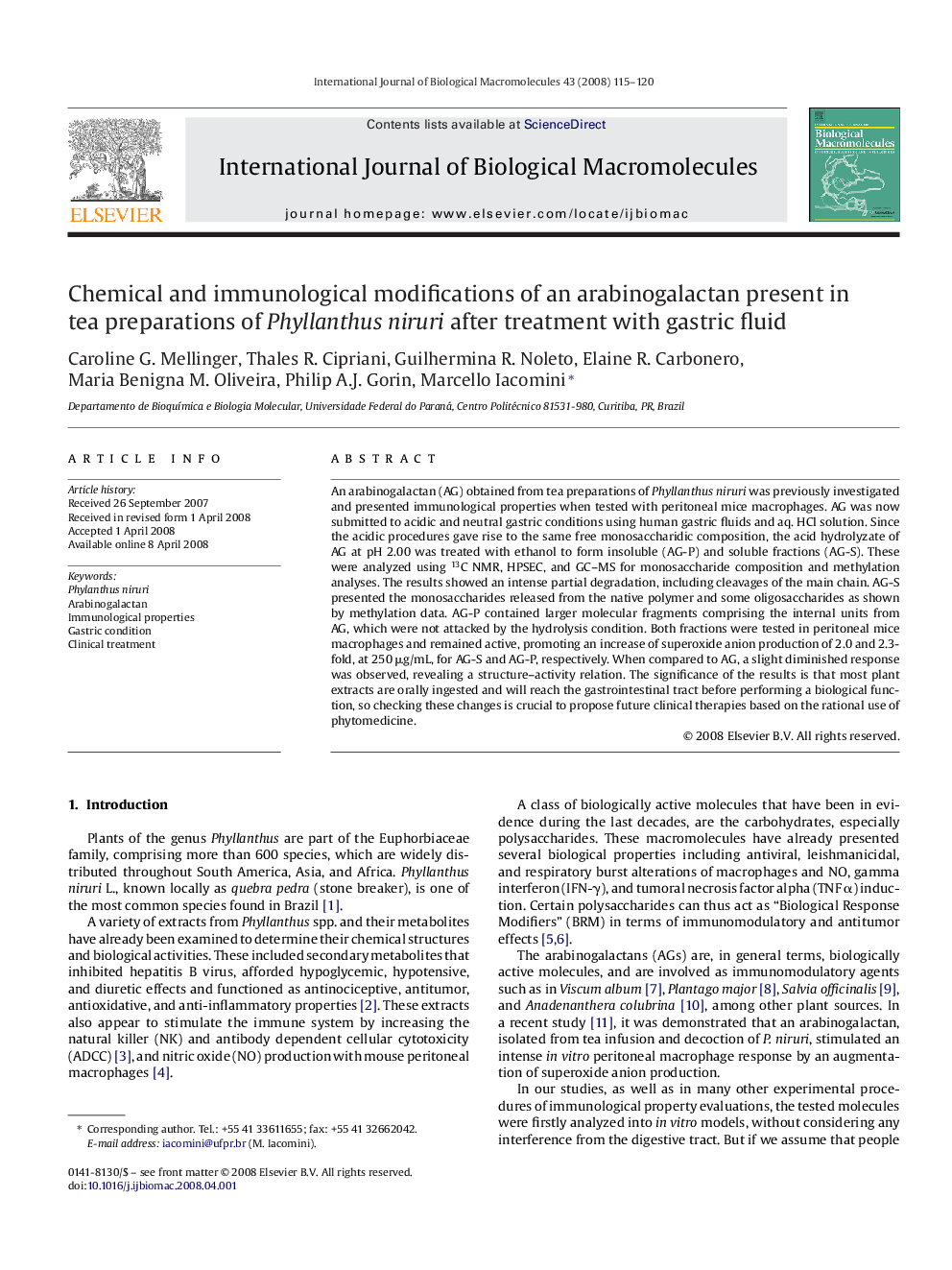| Article ID | Journal | Published Year | Pages | File Type |
|---|---|---|---|---|
| 1987476 | International Journal of Biological Macromolecules | 2008 | 6 Pages |
An arabinogalactan (AG) obtained from tea preparations of Phyllanthus niruri was previously investigated and presented immunological properties when tested with peritoneal mice macrophages. AG was now submitted to acidic and neutral gastric conditions using human gastric fluids and aq. HCl solution. Since the acidic procedures gave rise to the same free monosaccharidic composition, the acid hydrolyzate of AG at pH 2.00 was treated with ethanol to form insoluble (AG-P) and soluble fractions (AG-S). These were analyzed using 13C NMR, HPSEC, and GC–MS for monosaccharide composition and methylation analyses. The results showed an intense partial degradation, including cleavages of the main chain. AG-S presented the monosaccharides released from the native polymer and some oligosaccharides as shown by methylation data. AG-P contained larger molecular fragments comprising the internal units from AG, which were not attacked by the hydrolysis condition. Both fractions were tested in peritoneal mice macrophages and remained active, promoting an increase of superoxide anion production of 2.0 and 2.3-fold, at 250 μg/mL, for AG-S and AG-P, respectively. When compared to AG, a slight diminished response was observed, revealing a structure–activity relation. The significance of the results is that most plant extracts are orally ingested and will reach the gastrointestinal tract before performing a biological function, so checking these changes is crucial to propose future clinical therapies based on the rational use of phytomedicine.
